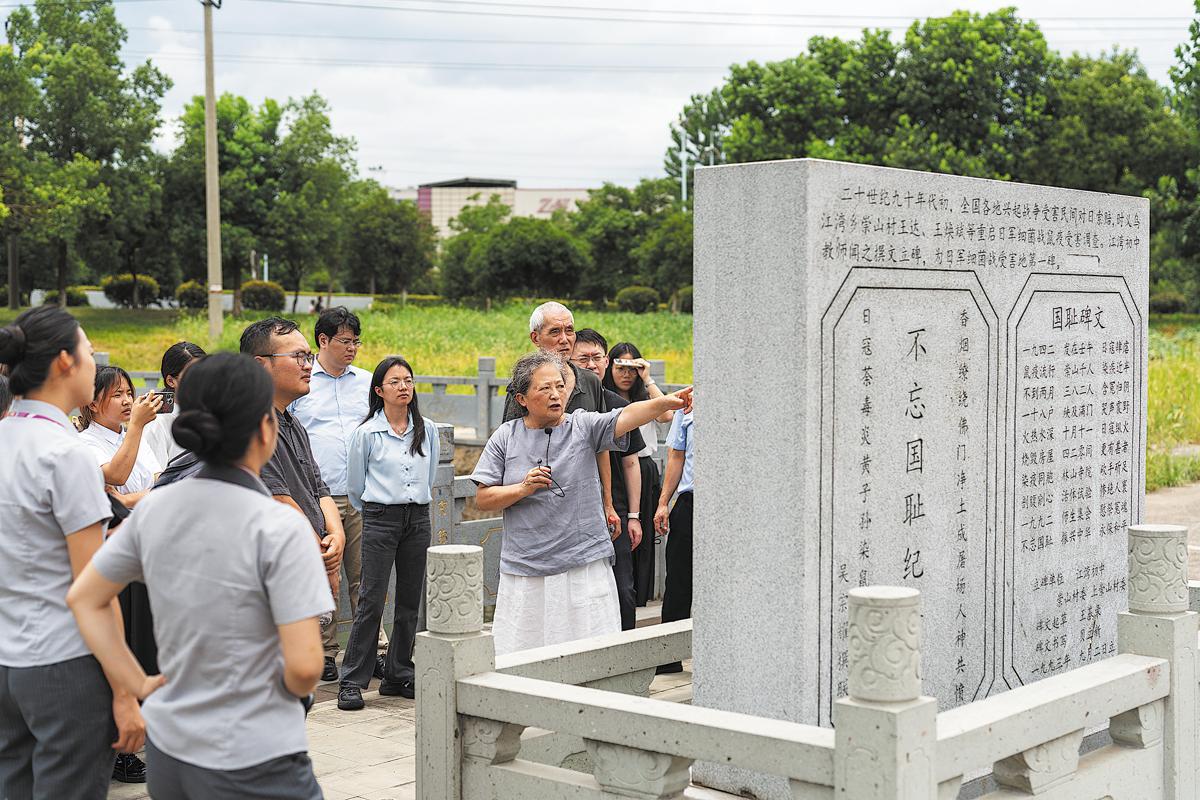Unit 731 atrocities a deep wound that can't be forgotten
As 80th anniversary of war victory nears, memories of Japanese crimes still vivid


Veteran offers apology
In Yiwu Peace Park, less than 1 kilometer from Chongshan village, is the Exhibition Hall for the Historical Facts of the Japanese Army's Bacterial Warfare. Here, members of the public can view thousands of archives and newspapers, and over 700 historical photos, revealing the Japanese army's violations of international law and its inhumane actions during the invasion of China.
"Through collaborative efforts, materials and archives related to the Japanese Army's bacteriological warfare in China have become more comprehensive," said Wang.
"I have compiled all electronic documents related to the bacteriological warfare litigation, including recordings, videos, photos and maps, and donated them to the Yiwu City Archives. Yiwu is establishing a database for the bacteriological warfare litigation archives to reconstruct the complete historical process," she added.
Some Japanese veterans apologized and expressed repentance to the Chinese victims of their wartime actions.
On Aug 13, 2024, Hideo Shimizu, a former member of Unit 731, returned to Harbin after 79 years to acknowledge the crimes committed by his detachment during the war.
He stood with his head bowed and hands folded in front of the Apology and Peace Monument at the Exhibition Hall of Evidences of Crime Committed by Unit 731 of the Japanese Imperial Army, publicly repenting.
Shimizu was about 14 years old and among the last batches of Unit 731 Youth Corps members when he was sent to Harbin in March 1945. He spent more than four months witnessing the war crimes committed by his unit, including the cultivation of pathogens, human dissections and experiments on humans.
Shimizu recalled the day when he was taken to a herbarium used to display body parts inside the lab complex. "There were all kinds of human specimens inside — the heart, the stomach, the lungs. I was shocked by the brutality."
On Aug 14, 1945, Shimizu fled China with the retreating Japanese forces.
After returning to Japan, Shimizu was haunted by the guilt of what he saw and what he was forced to participate in.
In 2016, he revealed his identity as a former Unit 731 member and began to expose the atrocities committed by the Imperial Japanese Army through public speeches and interviews, aiming to reveal historical truths.
"Historical facts cannot be covered up," said Shimizu.
"I was determined to return to the site of Unit 731 before I die to express my deepest apologies to the Chinese people who had been hurt, and hope to arouse more people's reflection and vigilance, cherish the hard-won peace, and avoid the recurrence of the tragedy of war."
Contact the writers at zhouhuiying@chinadaily.com.cn

























